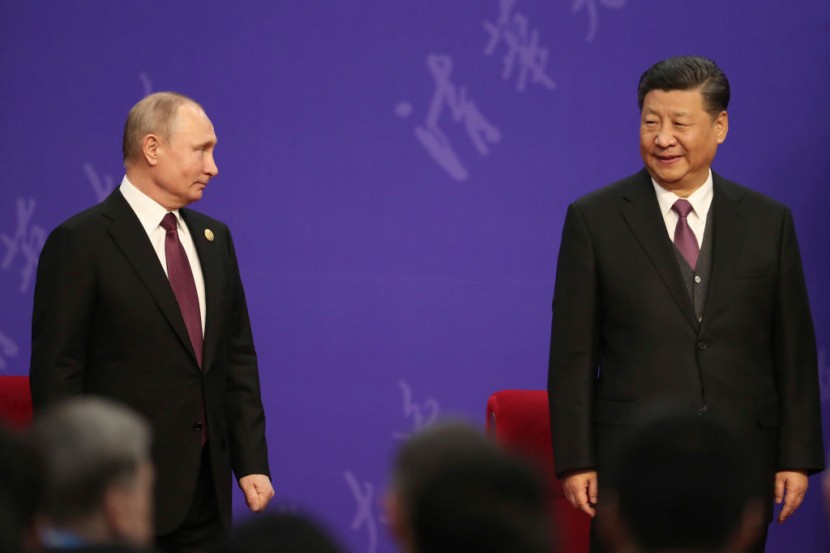
A top Space Force official warns that American satellites far beyond Earth's orbit face a near-constant barrage of threats from Russian and Chinese technologies and that the situation is only getting worse.
In recent years, an arms race in space between the US, Russia, and China has been rapidly heating up, despite warnings from US officials that such a build-up is perilous.
In a column published Tuesday, General David Thompson told the Washington Post, "It's actually an evolution of activity that's been going on for a long time."
Russia and China attacking US "every day" in space
Thompson is the first vice chief of space operations for the United States Space Force, having previously served in the Air Force for more than three decades. Lasers, radio frequency jamming, and other cyberattacks are among the common threats facing the United States, according to Thompson.
He also revealed that a Russian satellite's weapons test in 2019 got dangerously close to a US satellite, prompting the military to fear an attack. Thompson claims that China is launching new satellites twice as quickly as the United States and that the booming superpower is developing a global satellite system capable of monitoring any area of the globe.
Per Daily Mail, China has apparently been developing on a satellite with a robotic arm or grappling hook that could physically attack another spacecraft in orbit for years. It could theoretically damage or even deactivate US satellites that disclosed information regarding China's nuclear activities and the presence of Uyghur Muslim concentration camps.
Russia conducted an anti-satellite weapon test earlier this month, worrying the international scientific community. Because Russia's 4,410-pound Cosmos 1408 satellite, launched in 1982, was no longer working, Russia's anti-satellite, or ASAT, launched on November 15 and purposely damaged it.
Experts say the space debris from last week's collision over the Atlantic Ocean, which included "some 1,500 pieces of trackable size," will wreak havoc on spacecraft for years, if not decades.
Russia and China's relationship is developing
Astronauts on the International Space Station (ISS), which orbits 260 miles above Earth, were advised to take cover for two hours to allow the debris to pass. One space company chastised Russia for putting the crew of the International Space Station in danger, calling it "irresponsible behavior that harms all spacefaring nations."
Thompson recounted a time when Russia came dangerously close to launching a space attack on the United States. In 2019, a small Russian satellite was put so close to a US "national security satellite" that the administration couldn't tell if it was an attack or not. The issue was eased, however, when the Russian satellite drew away and released a small target, which was then shot in a weapons test.
Russian Prime Minister Mikhail Mishustin stated on Tuesday that the relationship between Russia and China is developing and that working together is the greatest reaction to unfriendly measures and unilateral sanctions by other nations.
Mishustin urged Moscow and Beijing to "join forces" on the principles of "equality, mutual trust, and respect" during a videoconference with his Chinese counterpart, Li Keqiang.
Mishustin specifically mentioned ambitions to link the Eurasian Economic Union, a group of five former Soviet Union member nations, with China's Belt and Road Initiative, a worldwide infrastructure development initiative.
Moscow and Beijing have collaborated intensively in recent years in a variety of spheres, including economics and defense. During the 3rd Russian-Chinese Energy Business Forum on Monday, Chinese President Xi Jinping stated that his country is "ready to pool efforts with Russia to establish deeper energy cooperation, to preserve energy security, and to tackle the challenges of global climate change," Big News Network reported.
Related Article: China To Release Oil Reserves as Countries Join US in Trying To Cool High Prices, Tame Inflation
@YouTube
© 2026 HNGN, All rights reserved. Do not reproduce without permission.








